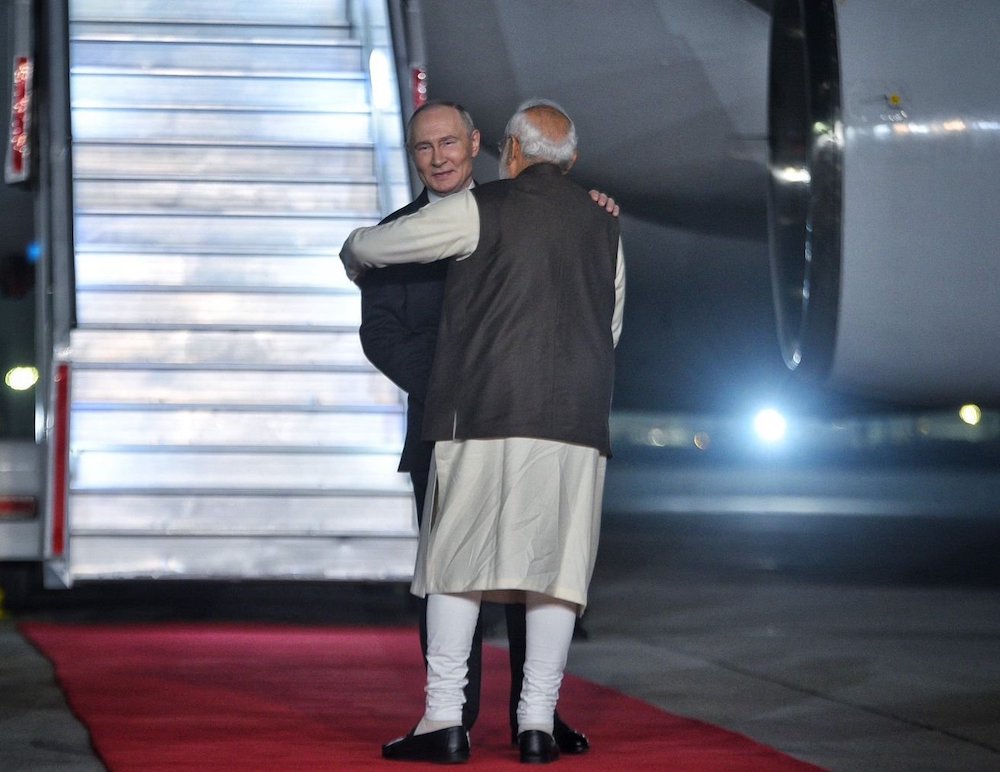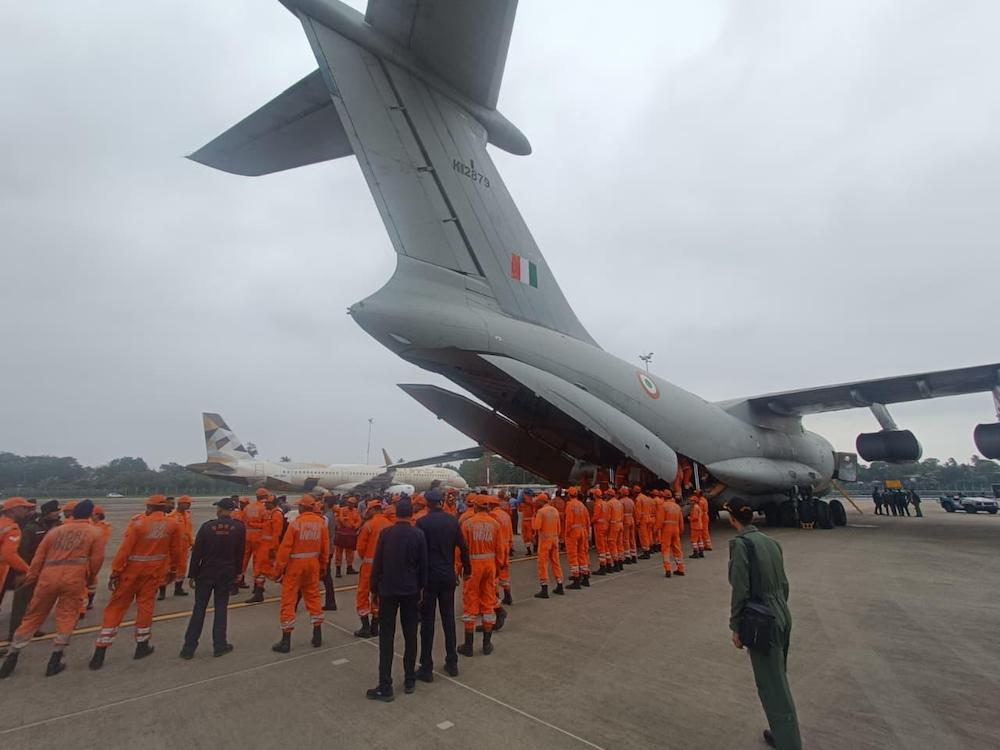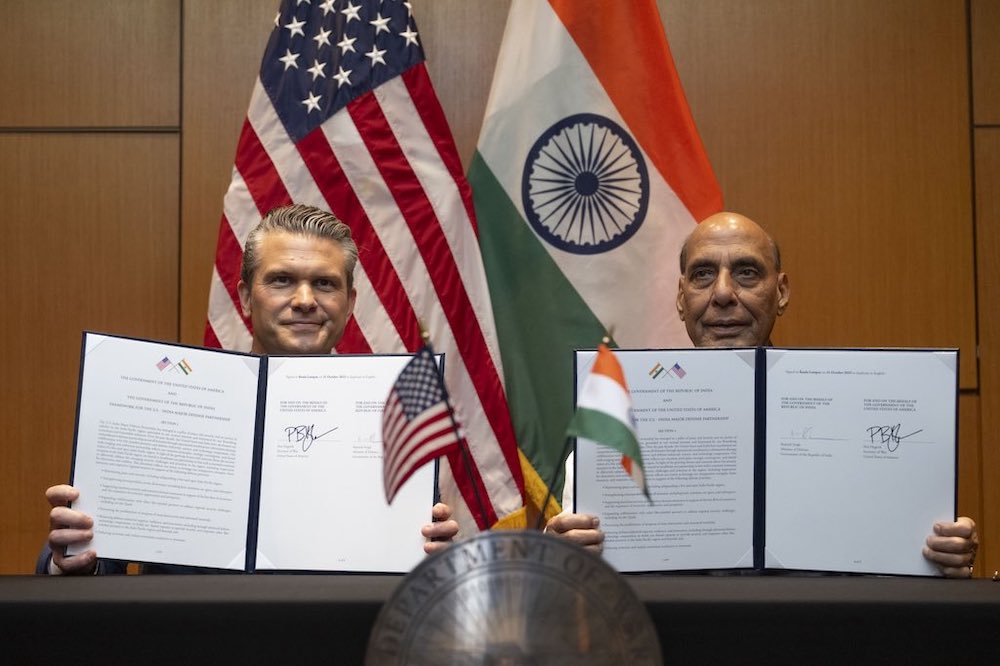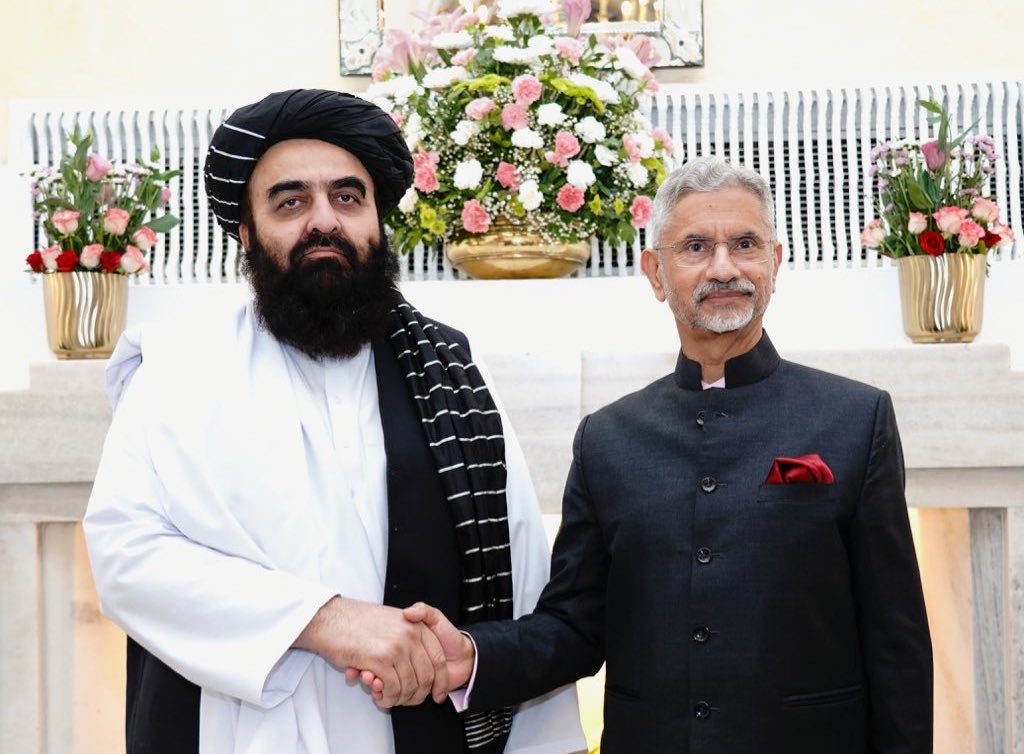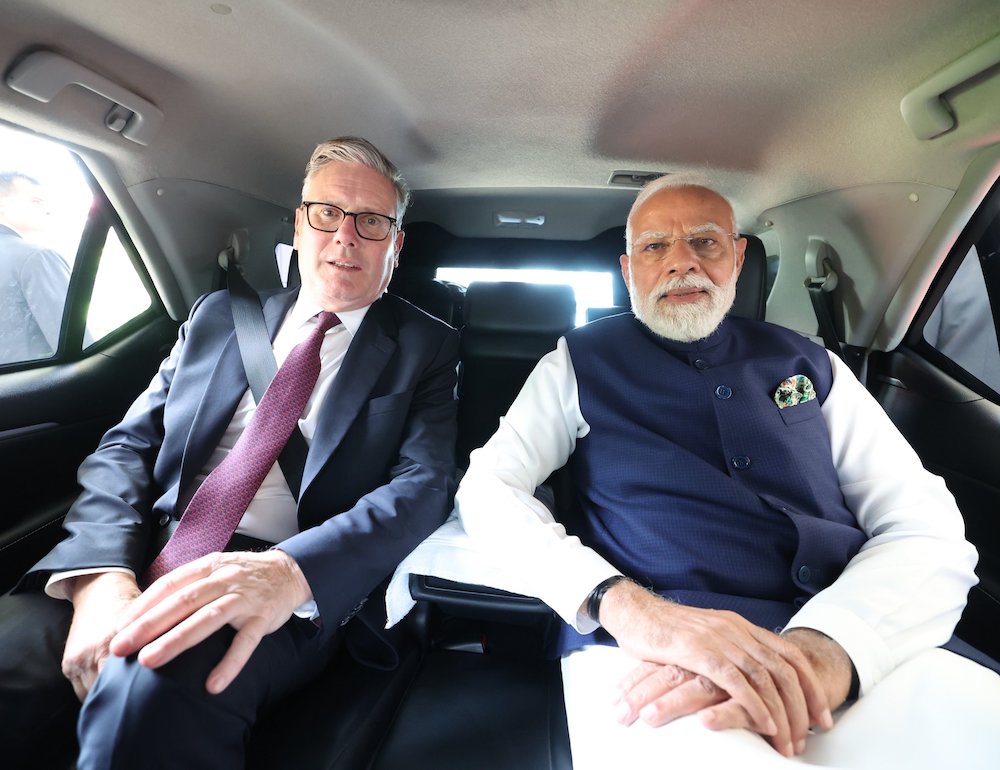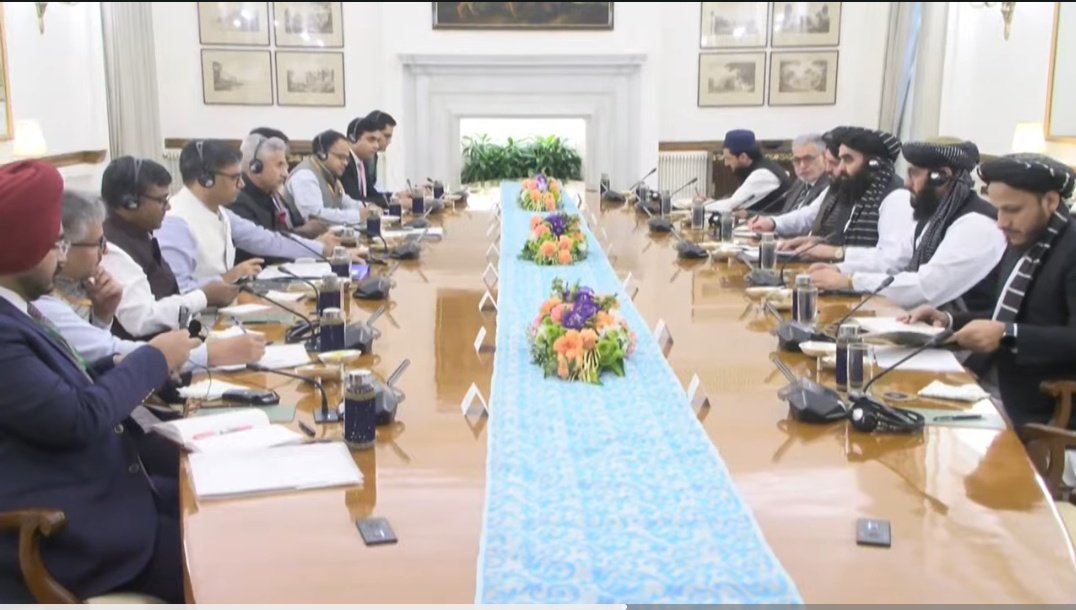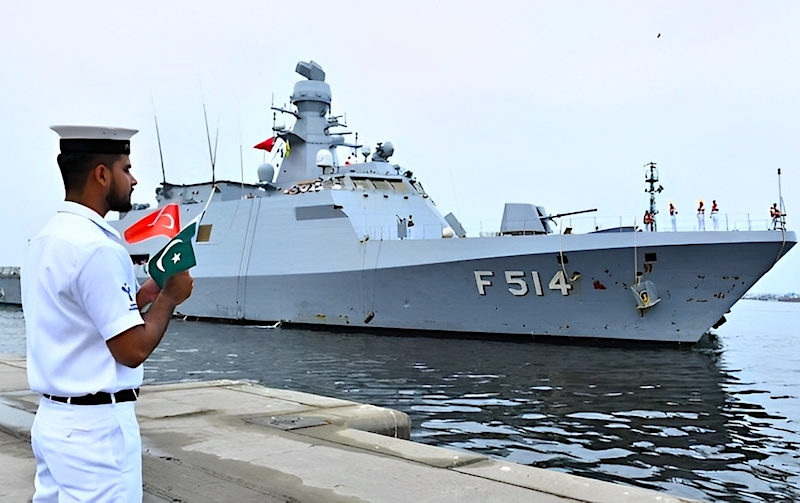 A Pakistan Navy sailor holds the national flags of Pakistan and Turkey as Turkish Navy Ship TCG KINALIADA (F-514) arrived in Karachi, on June 30, 2024. The two countries have a long history of military cooperation. (Photo: Pakistan Navy)
A Pakistan Navy sailor holds the national flags of Pakistan and Turkey as Turkish Navy Ship TCG KINALIADA (F-514) arrived in Karachi, on June 30, 2024. The two countries have a long history of military cooperation. (Photo: Pakistan Navy)
New Delhi: The United States has approved a significant missile sale worth a total of $304 million to Turkey, raising substantial concerns in New Delhi following Turkey’s recent military support to Pakistan during India’s Operation Sindoor. The decision comes at a particularly sensitive time, as evidence shows Turkish-made weaponry was directly deployed against Indian forces earlier this month, while the president of Turkey, Recep Tayyip Erdogan, continues his controversial stance on the Kashmir issue.
US-Turkey Arms Deal Details
The US state department authorized the Foreign Military Sales (FMS) case for Turkey on May 14, approving the potential sale of missiles and related equipment valued at approximately $304 million. The package includes 53 AIM-120C-8 advanced medium-range air-to-air missiles (AMRAAM) estimated at $225 million and 60 Block II missiles valued at $79.1 million. RTX Corporation (formerly Raytheon) will serve as the principal contractor for this arms package.
This deal, which still requires US Congressional approval, was announced while the secretary of state of the United States, Marco Rubio, was visiting Turkey for a Nato foreign ministers’ meeting. The timing indicates a potential thawing of relations between Washington and Ankara after years of tension stemming from Turkey’s 2017 purchase of Russian S-400 missile-defence systems.
“The State Department has made a determination approving a possible Foreign Military Sale to the Republic of Türkiye of AIM-9X Sidewinder Block II missiles and related elements of logistics and program support for an estimated cost of $79.1 million. The Defense Security Cooperation Agency delivered the required certification notifying Congress of this possible sale today [Sic],” the US’s Defense Security Cooperation Agency published [archived link] in its website’s Congressional notifications archive on Wednesday.
On the same day, another DSCA post [archived link] read: “The State Department has made a determination approving a possible Foreign Military Sale to the Republic of Turkey of AIM-120C-8 Advanced Medium-Range Air-to-Air Missiles and related elements of logistics and program support for an estimated cost of $225 million [Sic].”
Turkey’s Role in Operation Sindoor
The authorization of the missile sale comes barely a week after India paused Operation Sindoor, a military response to the Pahalgam terror attack, during which Turkish military involvement with Pakistan became evident. According to intelligence sources, Turkey supplied over 350 drones and deployed military operatives to support Pakistan during the four-day conflict with India earlier this month.
As reported by India Sentinels earlier, Wing Commander Vyomika Singh, a spokeswoman for India’s armed forces, during the May 9 official media briefing on Operation Sindoor, said on the intervening nights of May 7 and 8, the Pakistan military used around 300–400 drones to target Indian military infrastructure along the northern and western borders. She added that forensic investigation of the wreckage of the drones is being conducted, with initial reports suggesting they are Turkish Asisguard Songar drones.
“The Indian armed forces shot down many of these drones using kinetic and non-kinetic means,” she had further added.
Perhaps most concerning for Indian security establishments is intelligence suggesting that Turkish advisors were actively involved in helping Pakistani military officials plan and coordinate drone attacks against Indian targets.
Reports indicate that Pakistan deployed various other Turkish-made drones, including the Bayraktar TB2 and YIHA models for surveillance, target marking, and kamikaze-style attacks on Indian forward positions and military convoys. A sources-based India Today TV report [archived link] stated that two Turkish military operatives were killed during India’s precision military strikes in Pakistan. The report further noted that sources indicated this “will not be disclosed” by Pakistan.
Turkey’s Kashmir Stance
The US-Turkey arms deal also raises concerns in India due to Turkey’s consistent support for Pakistan on the Kashmir issue. As recently as February 14, during a visit to Pakistan, Erdogan had explicitly stated: “The Kashmir issue should be addressed according to the UN resolution through dialogue and keeping in mind the aspirations of the people of Kashmir.”
During the same visit, Erdogan had further remarked: “Our state and our nation, as in the past, stands in solidarity with our Kashmiri brothers today,” a statement that drew criticism from New Delhi. The Turkish president made these comments after holding one-on-one meetings and delegation talks with the prime minister of Pakistan, Shehbaz Sharif, during which the two countries signed 24 agreements to strengthen bilateral ties.
On April 23, the same day as the Pahalgam terror attack, Sharif publicly thanked Erdogan for Turkey’s support on the “Kashmir issue”, highlighting the continued alignment between Ankara and Islamabad on matters that deeply concern India’s territorial integrity and security.
India’s Response and Strategic Concerns
In response to Turkey’s military involvement in the recent conflict, India blocked its netizens from accessing Turkish state broadcaster TRT’s account on X on May 14. This measure reflects growing frustration in New Delhi regarding Turkey’s increasingly active role in supporting Pakistan’s military actions against India.
Regarding the US missiles sale to Turkey, geopolitical commentators and geostrategy analysts note that the deal represents a concerning development for Indian security interests. They argue that the US is effectively arming a Nato ally that has demonstrated its willingness to support Pakistan in direct military confrontation against India. Many fear that these advanced missiles could potentially find their way to Pakistan through Turkey’s deep defence partnership with Islamabad.
The Indian military has already confirmed that Pakistani strikes during the recent conflict targeted 36 military locations from Leh to Sir Creek using Turkish-made drones. This represents a significant escalation in Turkey’s involvement in South Asian security dynamics.
Diplomatic Setback for India
Foreign policy experts view the US authorization of this missile sale as a diplomatic setback for New Delhi, especially given India’s growing strategic partnership with Washington. They suggest this deal essentially validates Turkey’s behaviour despite its direct support to Pakistan during a military conflict with India.
They further argue that for the US to proceed with this sale just days after Turkish weapons were used against Indian forces sends a problematic message about where India stands in America’s strategic calculations.
The timing of the deal is particularly significant as it coincides with the US’s top diplomat’s visit to Turkey for possible Russia-Ukraine ceasefire talks in Istanbul. This highlights Turkey’s growing importance as a regional mediator, potentially at the expense of India’s concerns.
Some geostrategic and defence experts take an even more pessimistic view. They suggest that while the US-India relationship remains strong, Washington’s decision to sell missiles to Ankara indicates that the US is compartmentalizing its relationships in ways that could undermine India’s security interests.
Broader Implications
The US missile sale to Turkey reflects the complex geopolitical balancing act Washington is attempting to maintain between its various strategic partnerships. For India, it highlights the challenges of navigating a multipolar world where even close partners like the US may make decisions that run counter to India’s security interests.
The Ministry of External Affairs has yet to issue an official statement regarding the US-Turkey missile deal. However, sources within the ministry indicated that India has conveyed its concerns to Washington through diplomatic channels, emphasizing that arming countries that support Pakistan’s military actions against India undermines the US-India strategic partnership.
The sale also raises questions about the effectiveness of India’s diplomatic outreach, particularly as it seeks to isolate Pakistan internationally following the recent military confrontation. With Turkey openly supporting Pakistan and now receiving advanced American weapons systems, New Delhi faces the challenge of recalibrating its approach to ensure its security concerns are adequately addressed by international partners.


